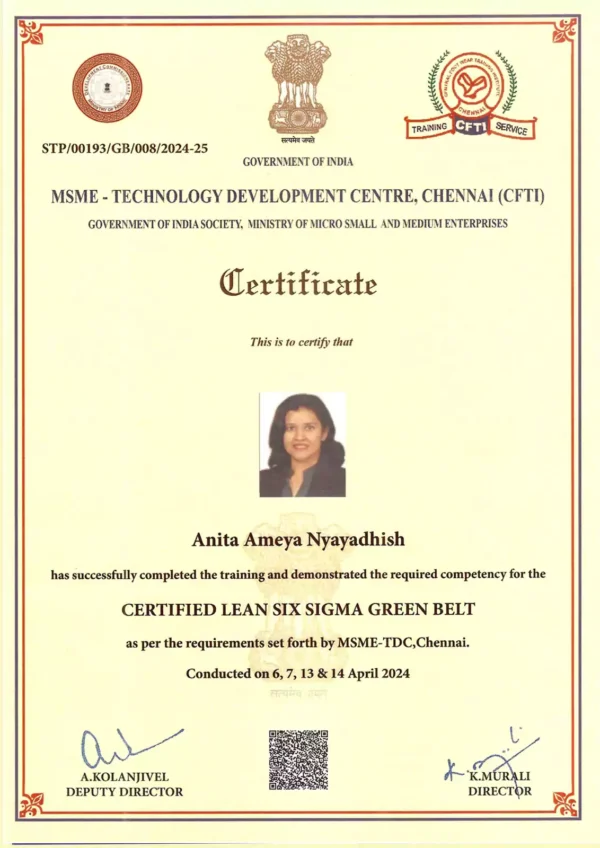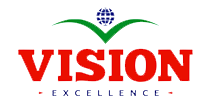Course Description
T
he Lean Six Sigma Green Belt program builds on Yellow Belt fundamentals and equips learners with advanced tools and methodologies to drive process improvement. Participants gain the skills to lead projects, apply statistical analysis, and integrate Lean principles to achieve organizational excellence and measurable results.
Understand the value of Six Sigma by exploring its history and the philosophies of Juran, Deming, Shewhart, and Ishikawa. Learn how Six Sigma projects align with organizational goals such as profit, market share, efficiency, and customer satisfaction. Grasp Lean principles, value streams, flow, and waste reduction, while differentiating DFSS approaches like DMADV and IDOV from DMAIC.
Master project identification through stakeholder analysis, Voice of the Customer (VOC), Voice of the Business (VOB), Cost of Poor Quality, CTQ Trees, and SIPOC diagrams. Develop project charters and explore team management techniques including roles, communication planning, brainstorming, Nominal Group Technique, and multi-voting. Use planning tools like affinity diagrams, interrelationship diagrams, prioritization matrices, PDPC, and activity networks.
Learn statistical foundations including descriptive and inferential statistics, central limit theorem, and probability (independent events, permutations, combinations). Develop skills in data collection, process metrics, and Measurement System Analysis (bias, linearity, stability, Gage R&R). Evaluate process capability with Cp, Cpk, Pp, Ppk, DPMO, and PPM.
Apply correlation, regression, and hypothesis testing (t-tests, ANOVA, chi-square, tests for means, variances, proportions). Explore FMEA (PFMEA and DFMEA), Why-Why analysis, and root cause analysis tools to uncover drivers of variation and defects. Conduct waste analysis to identify non-value-added activities.
Apply Design of Experiments (DOE) to understand main and interaction effects. Implement Lean tools including 5S, Kanban, Standard Work, Continuous Flow, Kaizen, and SMED to drive improvements. Conclude with pilot testing and implementation strategies to validate and sustain changes.
Learn Statistical Process Control (SPC) including chart selection, subgrouping, and interpretation. Apply additional controls such as control plans, Total Productive Maintenance (TPM), Poka Yoke, and visual management. Complete the phase with proper documentation, training, and ongoing monitoring to ensure project sustainability.








